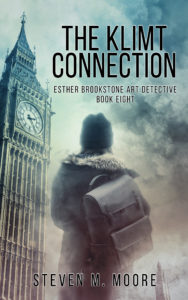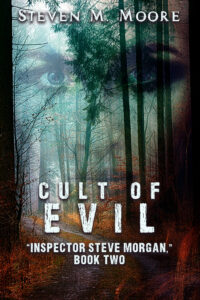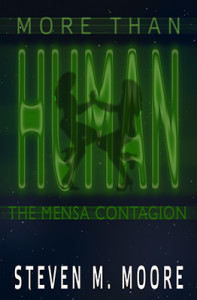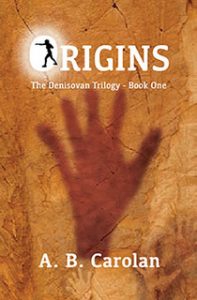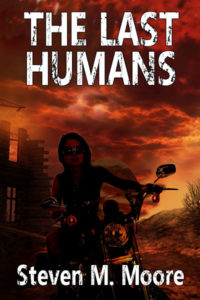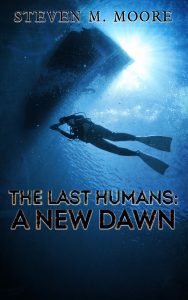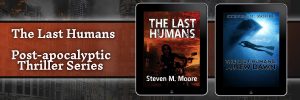[Note from Steve: It’s been a while since I’ve posted some short fiction. My only excuse is that short stories and novellas are like dashes and intermediate races, and I’ve been running a few marathons by writing and publishing several novels, notably finishing the “Esther Brookstone Art Detective” series and three novels from the new “Inspector Steve Morgan” series. I think this short story turned out rather well—you can tell me what you think by commenting or by using my contact page at this website—and it lets readers know a little bit about how I prepare to write my novels as well! Enjoy.]
***
There were three people left when the publican announced closing time at The Pink Hippo. Declan Flaherty decided that was okay; he needed a fag anyway. He stuffed the notes he’d made on napkins into his coat pocket, finished his second pint, and left the establishment to the old tippling couple and the plump publican, winking at the old woman.
She’d probably known he was a stranger. He wasn’t a tall man but wiry and muscular. She might even see him as a handsome bloke. Some women saw the introverted author that way, perhaps identifying him with one of his protagonists if they knew he was an author; some men were jealous when they eyed him, especially at book events. Usually the women were the ones who read his novels, mystery/thriller stories that had an eclectic mix of romance and suspense. If the men came along to his book events, they often did so reluctantly. Of course, that was a common occurrence in any cultural event in Greater London. Men were stereotypically sports addicts; women were a bit more eclectic with their entertainment choices.
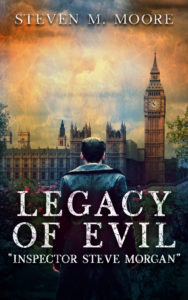 He wasn’t sure that the Lake District was comparable to London in that regard, of course. Certainly The Pink Hippo pub’s setting wouldn’t be one used for a cultural event, but he liked the out-of-the-way places to have a pint or two and study the local clientele. Those notes might eventually be used in some novel. Their number had increased after he left the more posh Riverside Inn that was nearer Penrith center.
He wasn’t sure that the Lake District was comparable to London in that regard, of course. Certainly The Pink Hippo pub’s setting wouldn’t be one used for a cultural event, but he liked the out-of-the-way places to have a pint or two and study the local clientele. Those notes might eventually be used in some novel. Their number had increased after he left the more posh Riverside Inn that was nearer Penrith center.
Outside he stopped at the edge of the little square and lit up. That gave his eyes time to adjust to the dim light. There were only four anemic street lamps at each corner of the small cobblestone-covered square, their light diminished even further by their dirty glass covers. Part of the charm, Flaherty thought. Peace and quiet that were hard to find in London.
He’d had the idea to set his next novel in the Lake District, part of Cumbria and a scenic and rustic area filled with vistas not found anywhere else in England. The largest town was Penrith that was much nearer the Irish Sea than where he was at. The square and its pub were more inland, in a hamlet east of the town. He supposed they called it a city. Even Penrith was smaller than nearby cities south of there—Birmingham, Liverpool, and Manchester among them. He knew most of them, but not Penrith nor the area around it.
He followed his usual practice: Scout out the area, get an idea about the locals, their habits, and their speech patterns, and just jot down ideas in general—he called the latter what-ifs and possible themes, and they might later be woven through and around the eventual plot. In this case, one idea was that major cities south of the area would bring crime into the area around Penrith, their gangs looking to expand their territories. Not exactly smart from the business perspective—the population was smaller—but maybe the competition would be less if they were the first to get their foot in the door.
The night wasn’t clear. He’d already had a few clear ones when the sky would be filled with stars, many more than one could see in those big cities. That night it was foggy, though; except for the quaintness of the surrounding buildings, one could imagine he was in some squalid London neighborhood—no rain but wet fog blowing all the way in from the coast just west beyond Penrith.
He’d finished half the smoke when he saw a man come out of an alleyway and walk towards him. Another tippler about to be disappointed that the pub had closed? He just managed to understand how wrong that guess was when the man pulled out a gun and started shooting.
***
“Good that you could join us,” Doc Simpson said to the arriving coppers. “You two deserved to have your slumbers disturbed too.”
Harry the SOCO glanced at Doc and then smiled and winked at the new arrivals. “Doc’s always in a great mood, isn’t he?”
Of course, DI Earl Wilson and DS Sally Hill knew that was an instance of Harry’s habitual and sarcastic irony. Yet two hours before dawn was a time when most people in that Lake District’s hamlet where the shooting had occurred would indeed be sleeping—an ungodly hour, Earl thought.
He was a police veteran who had started out as a patrol constable in London, a “bobby” or “top” as they were called, the latter for the helmet—and then bounced around after being promoted from PC to DC and finally DI, finally ending up in the Lake District, where he suspected he would retire someday because he loved hiking and fishing.
He was a big bear of a man, an oversized version of that American telly detective, Columbo, complete with old car and dirty raincoat, but he didn’t smoke cigars and didn’t drink much. In fact, for his age, he was in good shape. A criminal might outrun him, but they’d be hard-pressed to outfight him. He had once broken one’s jaw, but he’d gone to the hospital later to apologize to the hand-cuffed scrote for doing that.
Sally was from the other coast and loathed southern England. Her birthplace was Morpeth, a regional capital not far from Newcastle-on-Tyne, so she felt right at home in Penrith that might be considered a left-coast town in comparison to Morpeth, without any political meanings intended—the area on the border with Scotland was a conservative one.
Twenty years younger than her Guv, she was coming into her own as Earl’s partner in policing. She was fleet of foot and good enough at martial arts to compensate for her small size, as many a criminal had discovered. She also could turn on the charm, though, if she felt inclined or needed to do so in an interview or interrogation.
Ignoring Doc Simpson, who was indeed always of sour disposition at best, Earl said to Harry, “Mind if we look around?”
“No, as long as you stay outside my five-meter circle around Doc here, but tread carefully.”
Earl jerked a thumb at the nearest of the two vans, an ambulance parked next to the SOCO’s van. “Do we have witnesses?” He was referring to a man and woman sitting at the back and swinging their legs back and forth as they drank tea.
Earl knew there’d been two ambulances. The first on the scene had rushed the shooting victim to the hospital with both blues and twos, surely a rude awakening for light sleepers in the hamlet as it sped along on its way to the nearest NHS facility.
“They found the victim. Fortunately.” Doc was packing up. Having no dead body to play with, the pathologist had only been collecting blood samples. There were plenty within that five-meter circle, so it was also where the victim had fallen.
“Go have a chinwag with them,” Earl told Sally. “I’m going to have that walk-around.”
Doc would eventually post reports about wounds and the possible ID of the weapon that had caused them on HOLMES, the national police database, the latter helped along by any bullets dug out of the victim at the hospital. Harry would add his contribution there as well. The rest of the investigation would be up to Sally and Earl.
As he walked around the small square, he decided there was no good hiding place within it. No trees or walls to hide behind and no benches to sit on and pretend to be reading a paper, although that would be an absurd cover considering the dim light. A chemist’s shop wasn’t yet open and was on one side opposite the pub; it probably offered only a small variety of medicines, its business mostly limited to non-prescription over-the-counter items. Except for its sign, its facade looked like the rest of the buildings that contained cheap flats. The square was some distance from High Street and not in a safe part of town, but Earl knew the pub was popular with the locals. In summer months, swarming tourists might even find it, much to the locals’ disgust.
Four alleyways entered the square perpendicular to each side; they originated in surrounding streets. Earl checked out each one. In the third, he found the hideaway he’d searched for, a place where someone had waited to ambush the victim. The remains of a half dozen or more fags had been scattered around at one spot just inside the dark alley. He eyed the pub and confirmed that from where Doc was crouched the spot in the alleyway was invisible. The fags’ butts would provide DNA evidence, which wouldn’t do them much good in the investigation unless they had something on record to match…like a suspect’s swab!
By the time he walked back to the crime scene, Doc had left with the second ambulance and the couple had disappeared. Harry looked ready to scarper as well.
“You’ll want to check that alley over there,” he said to Harry, pointing to it. “I’m sure that’s where the shooter waited for his victim to come out of the pub.”
“Will do.”
Earl approached Sally, who was entering data into her mobile with a stylus. “Any joy from that couple?” She shook her head in the negative. “Let’s go then. Not much more we can do here. This was a pre-meditated attack. Maybe the victim, if he’s survived, can tell us the why or even the who. We’ll stop by the hospital on the way back to the station.”
***
“He might be a bit groggy, but he was talking to me,” the NHS ER doctor said. “Be brief, Inspector.”
Earl nodded. Sally and he walked to the patient’s room; Earl peeked in. “No surprise. The bloke’s watching BBC One. Looks comfy.” He entered; Sally followed. “DI Earl Wilson here, Mr. Flaherty. Feel up to answering some questions?”
Declan smiled. “I was wondering when rozzers would appear. Come in, Inspector.” He used the remote to turn off the telly. “I’ll just need a few sips of water for my dry mouth before I’m interrogated by you.”
Earl wondered how the victim could look so good after surgery where three bullets had been removed. He had them in an evidence bag already. They now knew he was an author, not a famous one but popular enough. His stubble and wild black hair was sprinkled with some gray, and his intelligent blue eyes had lost none of their clarity from the pain killers. Stretched out on the hospital bed, Earl could see that he wasn’t a tall man; he was muscular, though, and a bit pale now. Who wouldn’t be? Not in bad shape considering, with a smile that Sally couldn’t resist returning.
“Not an interrogation, Mr. Flaherty,” she said. “We just need to hear what you know about the shooting to help us go out and find the shooter.”
Declan eyed her. “The proverbial silent partner speaks, and a winsome and lovely lass she is. A much better sight for my tired eyes than you are, Inspector.”
“DS Sally Hill, my sergeant,” groused Earl. He pulled up a chair beside the bed and sat; she followed his lead on the other side and took out her mobile and stylus to take notes.
Is she showing leg to the Irishman? he asked himself. The brogue had been obvious from the start. Earl sorted the author’s water. “Now, Mr. Flaherty, if you would be so kind to go over the events of last night and this morning for us? Start by explaining how you, an obvious visitor to our area, came to choose that particular pub.”
The writer’s answers to his questions were short, clear, and precise. Earl could tell he was a skilled observer. He supposed many writers had to be like that to make their plots and characters come alive. Declan’s trip to the pub, the second of the night, had been suggested by the woman who owned and ran the boarding house where he’d been staying. He wanted to experience some local color. He got it! In his own red blood! On second thought, that wasn’t local: They needed more information about the man’s background.
The writer explained why he was visiting the area, how he went about plotting his novels, and his background: Born in Cork, resident of Dublin then London, and he even told them who his agent and publisher were. He also had no idea who had targeted him.
“Interesting bloke,” Earl observed to Sally upon returning to their carpool vehicle parked in the hospital’s car park. His own motor was on its last legs, so he often “borrowed” one of the station’s little EVs that didn’t have much range but could outrace the older and heavier patrol vehicles, especially with blues and twos clearing the way. “I’ll let you interview that boarding house lady. Maybe one of her guests had some angry words with Mr. Flaherty? The Irish diaspora is still sometimes unpopular with locals. I’m going to make some calls, one to Flaherty’s publishing house and the other to his agent. It’s also possible Flaherty made someone angry in London who has followed him here. Either one might be able to tell me that.”
She smiled. “A literary critic? I don’t think the boarding house lady, publisher, or agent will offer any leads.”
“No stone unturned, I always say. Obviously someone targeted Declan Flaherty. They waited in that alleyway until he exited the pub and then shot him. It’s our job to find out who and why.”
***
The lady who ran the boarding house was also Irish but a longtime resident of the area, a widow named Mrs. O’Hara. She’d lived in the Lake District long enough that her Irish brogue was sprinkled with Cumbrian dialect. Sally had lived long enough in the area that she had no trouble understanding her.
“Mr. Flaherty writes novels, Sergeant. I have a few of them here, and he signed them for me. Imagine! ‘Twas wonderful to meet a real writer, like. Hard to believe someone shot the poor man. Are you married, Sergeant Hill?”
“No, ma’am.”
“Um, I’d go after him in a heartbeat if I were your age. ‘Course, my Mike were a handsome feller too. Dinna write. Could barely make it through our Penrith broadsheet. You ‘owt to chat’im up, lass. He’s not married either.”
Sally didn’t blush. People said lots of things in interviews, many of them inappropriate. A copper had to get used to it. “I’m really here to ask you how he got along with your other guests. Were there any barneys at your dinner table?”
“I offer breakfast and dinner, Sergeant. Right now I only have two other boarders, a missus and a feller. She’s Bonnie Ellison and has been with me for donkey’s years. She’s a nurse at the hospital. Randall Bradley’s a traveling salesman that’s with me every third week. ‘Course during tourist season, I’m full up. Twitchers, hikers, fishermen, and so forth, attracted to our great outdoors.”
“Did Mr. Flaherty have any barneys with Ms. Ellison or Mr. Bradley?”
“Not one, Luv. We all got along famously. One big happy family, like. Every dinner was a party among friends. They’re early enough so everyone can enjoy the nightlife afterwards if they’re keen on that.”
“Did you and Mr. Flaherty get along?”
“Famously. It was like having George Moore living under the same roof. And ‘twas a brilliant conversationalist too, he was.”
She knew Mr. Moore was a Irish novelist from the twentieth century’s early years. Perhaps Mrs. O’Hara was well read? “I understand that you recommended that pub to Mr. Flaherty. Any particular reason?”
“Aye. ‘Twas Mike’s favorite. I used to go with him sometimes. Back then we’d play cards or do darts. I had no idea it’s become that dangerous now, Sergeant.”
“He wasn’t shot in the pub, Mrs. O’Hara. And you couldn’t have known that someone wanted to kill him.”
“Aye, but I’ll think twice ‘bout recommending The Pink Hippo now.”
***
The publisher’s office in London put Earl through to the acquisition editor, a woman named Sally Field; she’d guided all of Flaherty’s novels from manuscripts to published books. She was aghast about what had occurred.
“I always told Declan to be careful. He had this thing about scouting around for local color. He’d often ride along with detectives at times, which wasn’t all that bad, but he’d also interview some unsavory characters too. I don’t know that any of them would want to shoot him, though. He always said that in his novels he changed names to protect the innocent as well as the guilty. He wrote fiction, after all.”
“Was he successful doing it?”
“Quite good, I dare say. He isn’t going to win any Nobel or Booker Prize, Inspector, but his books sell. They’re mystery novels, crime novels to be precise, with lots of suspense and thrills, even a bit of romance. In this business, few successes often lead to more successes, even though it’s a competitive field.”
“What about his competition? Any jealous authors out there? Or someone who thinks that he stole their ideas?”
“Because he researched his stories so much, no one would dare claim plagiarism. Most authors skip the research, just using the local knowledge they already possess. I suppose there are a lot of jealous authors, but why would that lead them to shoot him? That just doesn’t happen, Inspector Wilson.”
Flaherty’s agent who lived near the university city of Oxford was even less help. An Irish ex-pat as well, Flaherty was Sean Harris’s only novelist. He handled authors of children’s books and academic authors, mostly university professors. The two had known each other at Trinity College in Dublin. Sean couldn’t believe his friend had been shot either.
“You’ll never meet a nicer person, Inspector. He’s a bit introverted, so I think his publisher takes advantage of him sometimes. He’s also a true storyteller. My work with him now basically just involves helping him to get a manuscript ready. I only give them a cursory editing because his manuscripts are clean and the publisher has its own editing staff. The turnaround with them is a bit speedier now because his fan base is always querying about when the next novel will be released.”
“I guess he makes a good living?”
“Good but not great. For him, for me, and for his publisher. Everybody wins a bit when an author is successful.”
***
Read the rest of this entry »
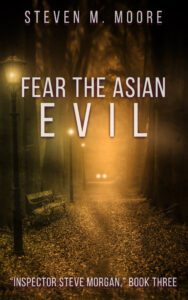 Comments are always welcome. (Please follow the rules on the “Join the Conversation” web page. If you don’t, your comment will be declared spam.)
Comments are always welcome. (Please follow the rules on the “Join the Conversation” web page. If you don’t, your comment will be declared spam.)
